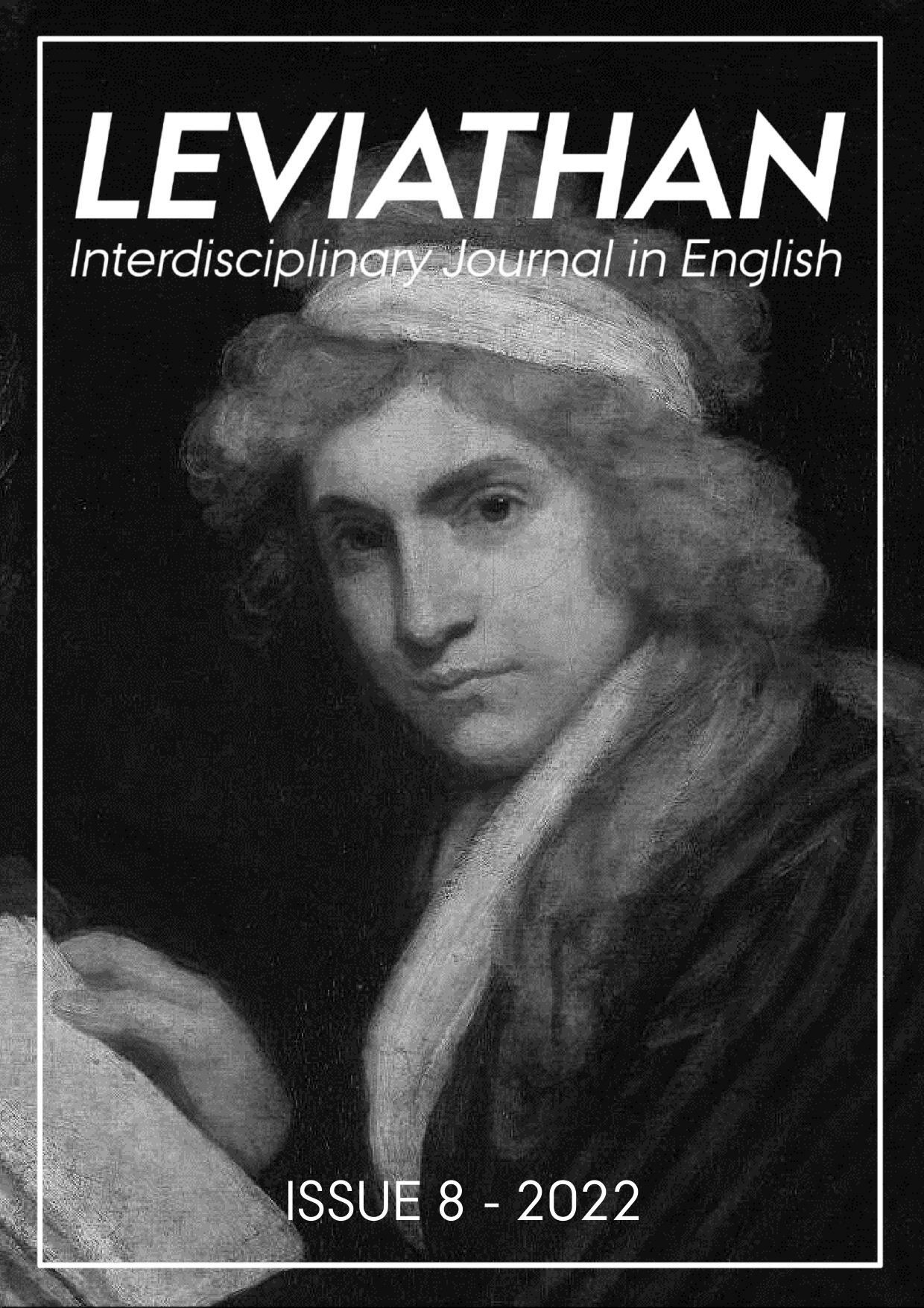English Spoken in the Channel Islands
DOI:
https://doi.org/10.7146/lev82022132075Keywords:
Norman French, Channel Island English, Standard English, linguistic variation, dialects, Types of Language Variation in EnglishAbstract
The Channel Islands spoke Norman French up until the 19th century, when English began to take over as the main language of the inhabitants. Today, their local French dialects are dying out, but several features from Norman French are preserved in their English dialect for a while longer. This article examines some of the ways Channel Island English varies from Standard English, and how the dialect has been affected by Norman French by analysing five different features of the dialect: three of them phonological and two of them morphosyntactic. These features have been elected and analysed based on an interview of two native speakers of respectively Jersey English and Guernsey English, produced by BBC in 2015, as well as on findings of previous studies. Though the study, with only two speakers, is not necessarily representative, it does show that the non-standard dialect is present in the Channel Islands.
References
Aarts, Bas. 2014. “Pseudo-Coordination.” The Oxford Dictionary of English Grammar. Oxford University Press.
BBC Radio Devon. 2015. “Listening Project – Conversation between friends, Herbert and Donald.” Sounds. British Library. Accessed December 1, 2021. https://sounds.bl.uk/Accents-and-dialects/The-Listening-Project/021M-C1500X0740XX-0001V0.
Biberauer, Theresa, and Sten Vikner. 2017. “Having the edge: a new perspective on pseudo-coordination in Danish and Afrikaans”. In A Schrift to Fest Kyle Johnson, edited by Nicholas LaCara, Keir Moulton, and Anne-Michelle Tessier, 77-90. Amherst: Department of Linguistics, University of Massachusetts. https://doi.org/10.7275/R57D2S95.
Caudery, Tim, and Ocke-Schwen Bohn. 2017. The Sounds of English: An Activity-Based Course in English Phonetics and Phonology. Aarhus: Department of English, University of Aarhus.
Hughes, Arthur, Peter Trudgill, and Dominic Watt. 2007. English Accents and Dialects: An Introduction to Social and Regional Varieties of English in the British Isles. 4th ed. London: Hodder Arnold.
Jones, Mari C. 2001. Jersey Norman French: A Linguistic Study of an Obsolescent Dialect. Oxford: Blackwell.
——. 2007. “Channel Island French.” In Language in the British Isles, edited by David Britain, 358–367. Cambridge University Press. doi:10.1017/CBO9780511620782.023.
——. 2010. “Channel Island English.” In The Lesser-Known Varieties of English: An Introduction, edited by Daniel Schreier, Peter Trudgill, Edgar W. Schneider, and Jeffrey P. Williams, 35–56. Studies in English Language. Cambridge: Cambridge University Press. doi:10.1017/CBO9780511676529.004.
Krug, Manfred, and Anna Rosen. 2012. “Standards of English in Malta and the Channel Islands.” Chapter. In Standards of English: Codified Varieties around the World, edited by Raymond Hickey, 117–38. Studies in English Language. Cambridge: Cambridge University Press. doi:10.1017/CBO9781139023832.007.
Liddicoat, Anthony. 1994. A Grammar of the Norman French of the Channel Islands: The Dialects of Jersey and Sark. Berlin: De Gruyter Mouton. https://doi-org.ez.statsbiblioteket.dk:12048/10.1515/9783110877281.
OED (Oxford English Dictionary). 2021. Oxford: Oxford University Press. https://www.oed.com/.
Paździora, Mariusz. 1998. Not Quite English: The Channel Islands and Their Language Throughout History. Roskilde Universitet.
Ramisch, Heinrich. 1989. The Variation of English in Guernsey/Channel Islands. Frankfurt am Main: Lang.
——. 2008. "Channel Island English: Phonology" In A Handbook of Varieties of English: A Multimedia Reference Tool. Volume 1: Phonology. Volume 2: Morphology and Syntax edited by Bernd Kortmann and Edgar W. Schneider, 204-216. Berlin: De Gruyter Mouton. https://doi-org.ez.statsbiblioteket.dk:12048/10.1515/9783110197181-015.
Rosen, Anna. 2013. "Channel Island English" In The Mouton World Atlas of Variation in English edited by Bernd Kortmann and Kerstin Lunkenheimer, 98-106. Berlin: De Gruyter Mouton. https://doi-org.ez.statsbiblioteket.dk:12048/10.1515/9783110280128.98.
——. 2014. Grammatical Variation and Change in Jersey English. Amsterdam: John Benjamins: Accessed December 26, 2021. ProQuest Ebook Central. https://ebookcentral-proquest-com.ez.statsbiblioteket.dk:12048/lib/asb/detail.action?docID=1659973.
States of Guernsey. 2021. “Electronic Census; Latest Population, Employment and Earnings.” gov.gg. Accessed December 26, 2021. https://www.gov.gg/population.
States of Jersey. n.d. “Population Estimates.” gov.je. Accessed December 26, 2021. https://www.gov.je/Government/JerseyInFigures/Population/pages/population.aspx.
——. n.d. “Jèrriais: Jersey's Traditional Language.” gov.je. Accessed December 26, 2021. https://www.gov.je/Leisure/Jersey/Pages/Language.aspx.
Trudgill, Peter, and Jean Hannah. 2017. International English: A Guide to Varieties of English Around the World. 6th ed. London: Routledge. https://doi-org.ez.statsbiblioteket.dk:12048/10.4324/9781315192932.
de Vos, Mark. 2004. “Pseudo Coordination Is Not Subordination.” Linguistics in the Netherlands 21 (1): 181–192. https://doi.org/10.1075/avt.21.20vos.
Wells, John C. 1982. Accents of English. Vol. 2. Cambridge: Cambridge University Press. doi:10.1017/CBO9780511611759.
Downloads
Published
How to Cite
Issue
Section
License
Copyright (c) 2022 Leviathan: Interdisciplinary Journal in English

This work is licensed under a Creative Commons Attribution-NonCommercial-NoDerivatives 4.0 International License.
Attribution-NonCommercial-NoDerivatives 4.0 International (CC BY-NC-ND 4.0)
You are free to share (copy and redistribute the material in any medium or format).
However:
You may not use the material for commercial purposes.
You must give appropriate credit, provide a link to the license, and indicate if changes were made. You may do so in any reasonable manner, but not in any way that suggests the licensor endorses you or your use.
If you remix, transform, or build upon the material, you may not distribute the modified material.
You may not apply legal terms or technological measures that legally restrict others from doing anything the license permits.





